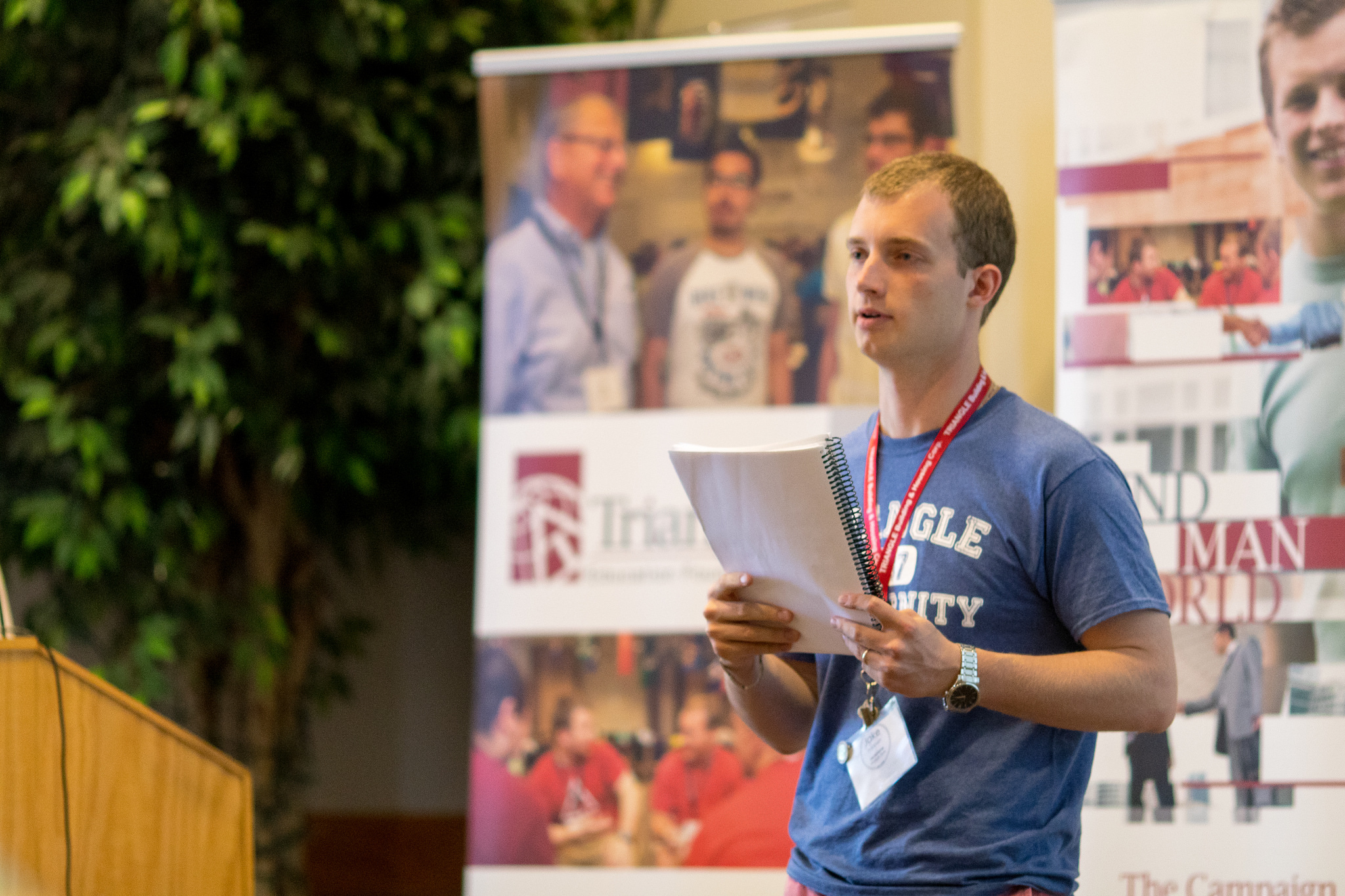Meet the Council of Emerging Leaders Member of the Month
Jake Hoppert msu10

Where/when did you initiate into Triangle?
I joined Triangle at Michigan State University in April 2010.
What made you choose Triangle?
I participated in this engineering program before classes started called Leadership Advantage, and the facilitators were from Triangle. I visited the house and got a bid, but I deferred initiation until next semester. I’d seen the stories about fraternities in the media, and I decided to wait and see what happens. Up to the day of initiation, I was expecting to be hazed. The Ritual made me first think that this organization was real and that it would make me ready to be a man. The brothers showed nothing but love during the whole process.
Did you hold any officer roles?
I held some minor roles, before becoming a member educator, and then president. I also spent a year in charge of the Leadership Advantage Program.
What was your favorite part of your undergraduate experience?
Hard question! My favorite part was just being at the house with all of the guys, whether I was tutoring or just hanging out. One of my fondest memories is going through initiation, and then attending other initiations.
What do you do now?
I’m a chemical engineer at Black & Veatch. I design power plants.
Why do you stay involved as an alumnus?
I love Triangle. I owe most of my current lifestyle to Triangle. I met my wife through National Convention.
What role did Triangle play in your career?
Oh, it played a major role. What makes a good engineer isn’t what they can do technically, it’s the soft skills. Being president proved that I could lead 50 men toward accomplishing goals. It was the chance to test the waters and see what I could do.
How has staying involved impacted you?
Staying involved helps keep those good memories. It’s fun to share with the undergraduates, “Hey this is what the house looked like, this is what we were doing at the time.” I like the educational aspect the most, teaching the new initiates about values, and making those personal connections.
What vision do you have for the Council of Emerging Leaders?
The National Organization is talking about “One Triangle”. To make that happen we need more engaged alumni. CEL is an opportunity to recruit alumni, bring them back into the fraternity, and show that it can still be just as meaningful and just as fun.
Do you have any advice for today’s undergraduate Triangle brothers?
